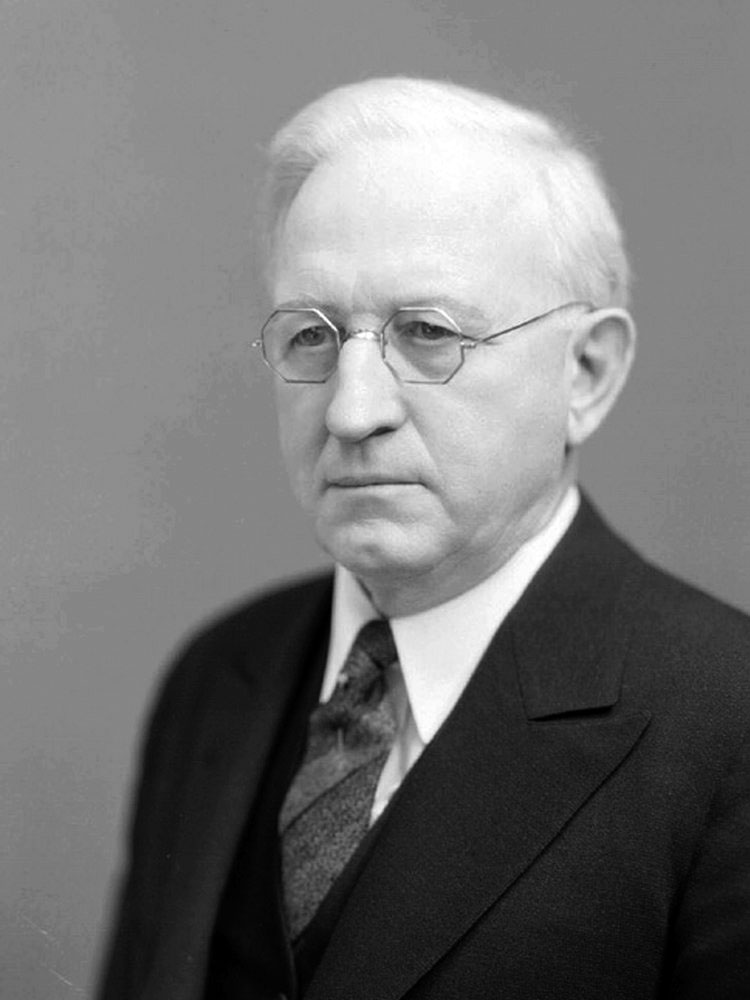
Chancellorship Dates
January 1, 1927 - July 31, 1938
DEGREES
- B.S., University of Nebraska, 1887
- D.Sci., University of Nebraska, 1917
- LL.D., University of Nebraska
BORN
October 17, 1865 - Livingston County, Michigan
DIED
June 28, 1941 - Lincoln, Nebraska
INTERMENT
Wyuka Cemetery, Lincoln Nebraska, Sec. 18, Lot 118, Grave 3
ARTIFACTS
SOURCES
- UNL Historic Buildings
- The Burnett Genealogy, Supplementing the Burnap-Burnett Genealogy
- "Prairie University," Robert E. Knoll
Edgar A. Burnett served as chancellor of the University of Nebraska from 1899 until he retired in 1938. His years at the university—during the end of the Roaring 20s and beginning of the Great Depression—were marked by some of its best and worst times.
Burnett arrived in Lincoln in 1899 as the newly appointed director of animal husbandry at the University of Nebraska agricultural campus. He worked closely with Charles Bessey and became the associate dean of the Industrial College under Bessey's leadership. He also took over as director of the experiment station, further increasing his ties to the "farm campus." When the Industrial College was dismantled in 1908, Burnett became the dean of agriculture. Burnett oversaw agricultural education and the work of the experiment station from his office in Agriculture Hall until he assumed the role of chancellor in 1927.
In 1927, Burnett was named acting chancellor following the announcement that Samuel Avery was stepping down. A year later, his chancellorship was made permanent, although support for him was never strong. Burnett had been highly successful at building up the agricultural programs of the university, increasing enrollment and buildings at the farm. His contacts with agricultural interests throughout the state were extensive. His work as chancellor proved to be more difficult and was plagued by economic hardship. Just two years into his chancellorship, the U.S. economy plunged into its deepest and longest downturn – the Great Depression. Whether Burnett might have been more revered as a leader had he served in a more stable time cannot be known. As it was, he was never popular with the faculty, who saw him as practical but uninspiring. Burnett spent his years as chancellor lobbying the legislature for very limited funds. He was able to secure funding for the first women's dormitories before the Great Depression descended and brought nearly all construction to a standstill.
The prolonged period of scarcity during which Burnett led the university led him to the recognition that the university could not rely on state funding alone. Always a practical man, Burnett responded to the situation with his most lasting contribution to the university – founding the University of Nebraska Foundation in 1937 with a bequest from a former member of the faculty.
Burnett retired from the university's top leadership post in 1938 at the age of 73. In the brief years between his chancellorship and his death, Burnett worked on a family history volume, "The Burnett Genealogy," publishing it in Lincoln in 1941 just prior to his own death the same year.